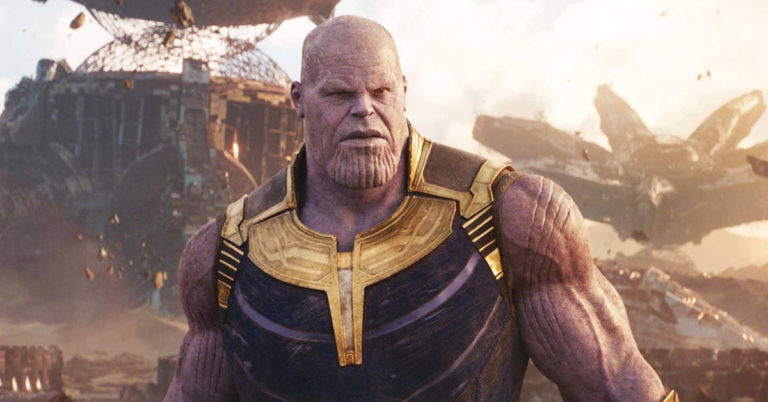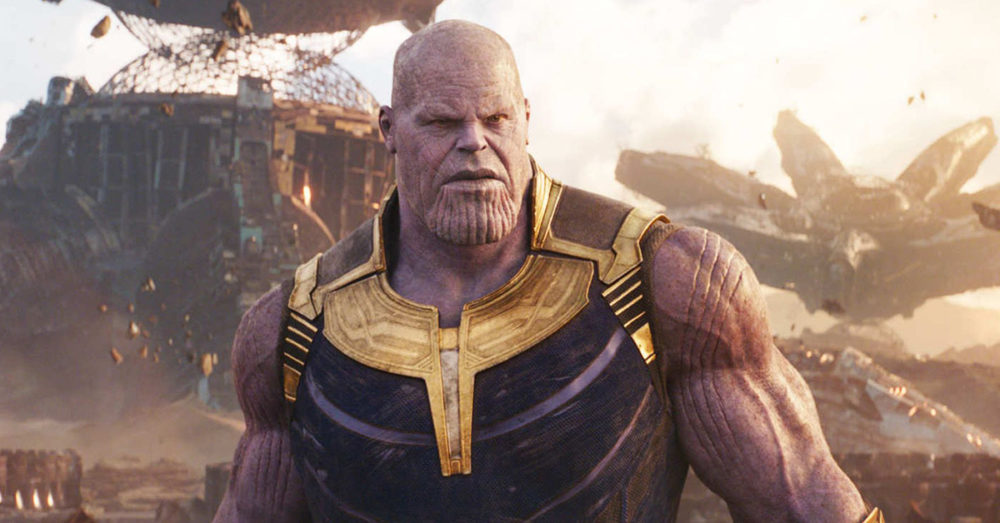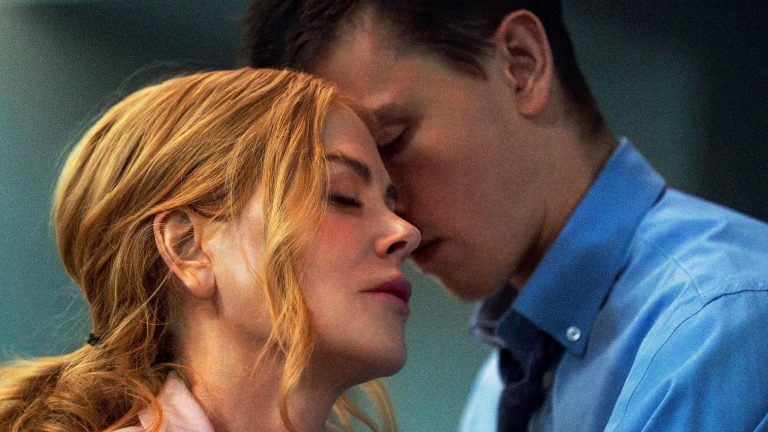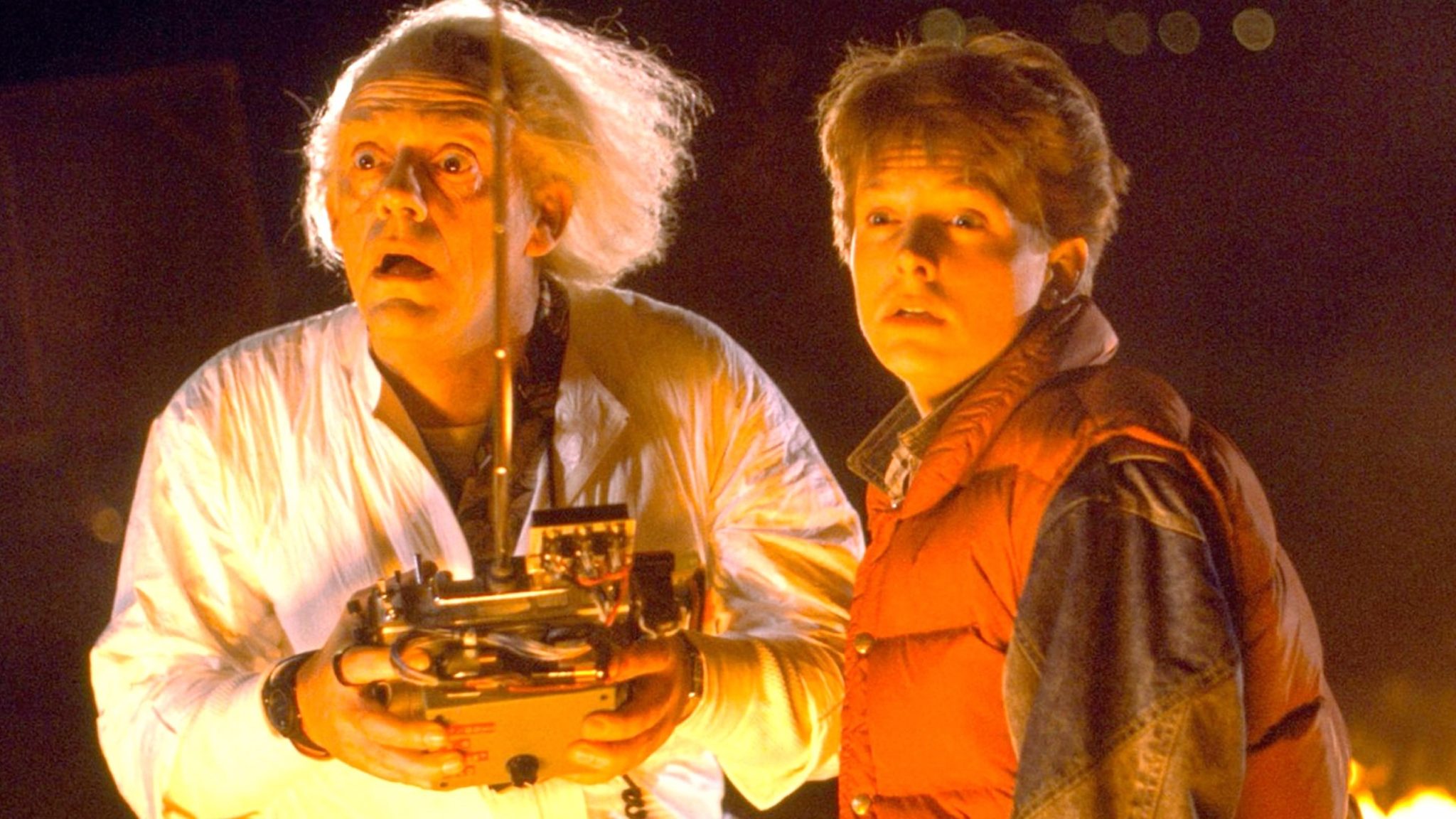How AVENGERS: INFINITY WAR Created a Complex Protagonist in Thanos

Warning: MAJOR SPOILERS lie ahead…
The directors and writers of what’s on track to be the biggest movie of the year, Avengers: Infinity War, recently sat down for interviews with Backstory magazine (which you can subscribe to here), and the conversations yielded insight into a character who may go down as Marvel Cinematic Universe’s best-ever villain: Thanos. Thanos makes for an intimidating-as-hell character — even with the anatomical jokes about his chin — and a complex one at that. And his complexity is impressive on a general screenwriting-level, not just superhero-movie-level.
Here are four key takeaways from the interviews, reinforcing why Thanos is one of the MCU’s most memorable characters.
Thanos is the protagonist, whether you’re on his side or not.
One of the more interesting nuggets from the interviews comes when the idea of Thanos as the antagonist is questioned. The screenwriters of the film, Christopher Markus and Stephen McFeely, maintain that Thanos, not any one of the Avengers, is the protagonist of their script. McFeely says, “[Thanos] is the protagonist. He overcomes odds. He sacrifices a lot and gets what he wants in the end.” Indeed, Thanos is on his own Hero’s Journey — his mission is driving the narrative forward. At the end of the second act, who is it that experiences the ultimate low point, the ultimate “all is lost”? McFeely continues, “At the end of act two something bad was going to happen to Thanos. That’s when [Gamora] goes over the cliff… It’s the worst thing that can happen to him, but it’s a necessary evil to get what he wants.”
Having Thanos as the protagonist allows the script to push the boundaries because in order for our “protagonist” to get what he wants, the characters we deem the “heroes” must suffer the consequences. It keeps the movie intriguing as it plays with what we believe to be the rules of superhero movies. A simple switch in storytelling means all bets are off in this one — we realize anybody can die (at least for now, right?).
Which makes the Avengers antagonists — and it works.
It may take a moment to wrap your head around the idea that “Earth’s Mightiest Heroes” are the antagonists of the film. But when you think about it, these pesky “heroes” fall into the role quite seamlessly — they keep getting in Thanos’ way! He’s just trying to protect the universe’s natural resources! Can’t a maniacal tyrant work in peace?! McFeely explains, “Thanos is taking a millennium view as opposed to one of, I have to live on this earth. Sometimes you have to burn crops in order to let them grow again. It’s just taking that idea to this natural, crazy conclusion… Thanos trades lives because he thinks he has a greater goal than the Avengers, who have a small-planet view of what’s right.” In Thanos’ head, he’s doing the right thing. As one of the film's directors, Anthony Russo, puts it, “... Somewhere deep down inside of him still exists some semblance of … optimism and hope. He has convinced himself this psychopathic mission he’s on is what’s required for the universe to survive.”
Thanos as the protagonist/Avengers as the antagonists is a lesson in character motivation for your own scripts. Your characters, good and evil, protagonist and antagonist, all must believe that what they’re doing, what they want, is the right thing. If your antagonist wants to take over the world, why? Why does she/he believe it’s the right thing to do?
Even the most diabolical of characters can still be lovers (in their own weird way).
Granted, any sane person may question what kind of love Thanos is preaching when it comes to his stepdaughter Gamora but it’s still love, nonetheless. Capturing Thanos’ fatherly love was a tricky one for Marcus and McFeely. As Marcus says, “We definitely wanted it to be a legitimate relationship. Not entirely one-sided.” He admits, “Yes, it’s extremely fucked up and he murdered her parents behind her back, but he did take care of her. He did raise her.” This all adds to the complexity of this scary-evil being. How are we supposed to feel about this purple behemoth? As Anthony Russo points out, “The mission of the movie was to make [Thanos] as complicated as possible so that the audience felt conflicted feelings for him. You hate him, but he’s charismatic… I think he ascribed something to [Gamora] — and God knows it might be incredibly personal, narcissistic love, but there’s some sense of love there. Who knows how to quantify love or what love actually means?”
Thanos helps flip the theme of heroic-sacrifice on its head.
Thanos is not just the protagonist, but he’s the central hub of this movie. As McFeely puts it, the Avengers are the “spokes off of that.” Thanos’ role is so impactful that it changes the game for almost all these heroes in how they view sacrifice. Self-sacrifice is a theme that’s explored in pretty much every superhero flick: the hero is ready and willing to die in order to save the world or save a loved one. But the Russo brothers and McFeely and Marcus wanted to explore a different type of sacrifice and Thanos helped them with that. Thanos’ presence asks our heroes to sacrifice something much bigger than themselves: sacrifice a loved one. Can Scarlet Witch destroy Vision in order to destroy the Mind Stone?; Can Star-Lord kill Gamora (on her orders) so Thanos doesn’t find out where the Soul Stone is hidden?; Doctor Strange decides to follow the path that seems to eviscerate half the universe in order to destroy Thanos; Even Thanos himself is asked for more than self-sacrifice in having to kill his stepdaughter for the Soul Stone.
Anthony Russo says, “How does it become more complicated when the choice becomes having to sacrifice someone you love for the greater good? It’s more complicated than just sacrificing yourself… what does that say about them, and what does that mean to these characters?” The threat of Thanos pushes the script into uncharted waters for a superhero movie. We’re not used to seeing our heroes being asked of something so deep. It makes for great conflict, juicy drama — and the proof is in the pudding that it’s possible to pull off in a script as large and high-concept as this. Something to keep in mind when writing your own.
To read both interviews in their entirety, click here to subscribe to Backstory or to buy the single issue.
 Travis Maiuro is a screenwriter and freelance film writer whose work has appeared in Cineaste Magazine, among other publications.
Travis Maiuro is a screenwriter and freelance film writer whose work has appeared in Cineaste Magazine, among other publications.
This piece was inspired by two articles from Backstory magazine: AVENGERS: INFINITY WAR WRITERS ON WHY THANOS IS THE PROTAGONIST OF THE FILM and THE RUSSO BROTHERS ON CHARACTER SACRIFICES IN AVENGERS: INFINITY WAR.
Photo credit: Marvel
For all the latest ScreenCraft news and updates, follow us on Twitter, Facebook, and Instagram.
Get Our Screenwriting Newsletter!
Get weekly writing inspiration delivered to your inbox - including industry news, popular articles, and more!



























